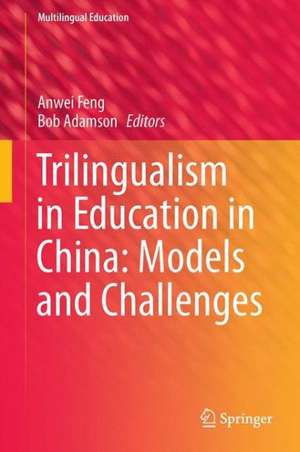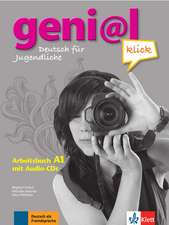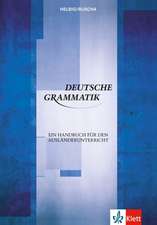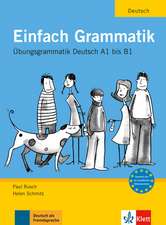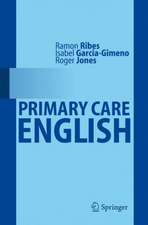Trilingualism in Education in China: Models and Challenges: Multilingual Education, cartea 12
Editat de Anwei Feng, Bob Adamsonen Limba Engleză Hardback – 9 oct 2014
| Toate formatele și edițiile | Preț | Express |
|---|---|---|
| Paperback (1) | 559.21 lei 38-44 zile | |
| SPRINGER NETHERLANDS – 11 sep 2016 | 559.21 lei 38-44 zile | |
| Hardback (1) | 569.86 lei 38-44 zile | |
| SPRINGER NETHERLANDS – 9 oct 2014 | 569.86 lei 38-44 zile |
Din seria Multilingual Education
- 18%
 Preț: 902.36 lei
Preț: 902.36 lei - 18%
 Preț: 956.81 lei
Preț: 956.81 lei - 18%
 Preț: 953.65 lei
Preț: 953.65 lei - 18%
 Preț: 836.29 lei
Preț: 836.29 lei - 15%
 Preț: 638.24 lei
Preț: 638.24 lei - 20%
 Preț: 567.32 lei
Preț: 567.32 lei - 20%
 Preț: 566.76 lei
Preț: 566.76 lei - 15%
 Preț: 649.87 lei
Preț: 649.87 lei - 15%
 Preț: 645.28 lei
Preț: 645.28 lei -
 Preț: 394.87 lei
Preț: 394.87 lei - 15%
 Preț: 643.84 lei
Preț: 643.84 lei - 15%
 Preț: 643.34 lei
Preț: 643.34 lei -
 Preț: 389.49 lei
Preț: 389.49 lei - 15%
 Preț: 704.36 lei
Preț: 704.36 lei - 20%
 Preț: 555.53 lei
Preț: 555.53 lei - 18%
 Preț: 953.65 lei
Preț: 953.65 lei - 18%
 Preț: 952.26 lei
Preț: 952.26 lei - 15%
 Preț: 646.43 lei
Preț: 646.43 lei - 15%
 Preț: 585.40 lei
Preț: 585.40 lei - 18%
 Preț: 787.15 lei
Preț: 787.15 lei - 18%
 Preț: 1009.22 lei
Preț: 1009.22 lei - 18%
 Preț: 948.92 lei
Preț: 948.92 lei - 15%
 Preț: 649.22 lei
Preț: 649.22 lei - 18%
 Preț: 1113.39 lei
Preț: 1113.39 lei - 15%
 Preț: 644.95 lei
Preț: 644.95 lei - 15%
 Preț: 634.68 lei
Preț: 634.68 lei - 15%
 Preț: 644.63 lei
Preț: 644.63 lei -
 Preț: 388.90 lei
Preț: 388.90 lei - 15%
 Preț: 647.27 lei
Preț: 647.27 lei - 15%
 Preț: 641.85 lei
Preț: 641.85 lei - 15%
 Preț: 635.80 lei
Preț: 635.80 lei
Preț: 569.86 lei
Preț vechi: 712.32 lei
-20% Nou
Puncte Express: 855
Preț estimativ în valută:
109.06€ • 118.42$ • 91.61£
109.06€ • 118.42$ • 91.61£
Carte tipărită la comandă
Livrare economică 18-24 aprilie
Preluare comenzi: 021 569.72.76
Specificații
ISBN-13: 9789401793513
ISBN-10: 9401793514
Pagini: 258
Ilustrații: XVII, 258 p. 16 illus., 5 illus. in color.
Dimensiuni: 155 x 235 x 22 mm
Greutate: 0.57 kg
Ediția:2015
Editura: SPRINGER NETHERLANDS
Colecția Springer
Seria Multilingual Education
Locul publicării:Dordrecht, Netherlands
ISBN-10: 9401793514
Pagini: 258
Ilustrații: XVII, 258 p. 16 illus., 5 illus. in color.
Dimensiuni: 155 x 235 x 22 mm
Greutate: 0.57 kg
Ediția:2015
Editura: SPRINGER NETHERLANDS
Colecția Springer
Seria Multilingual Education
Locul publicării:Dordrecht, Netherlands
Public țintă
ResearchCuprins
Preface.- 1. Researching Trilingualism and Trilingual Education in China.- Part 1: Meng-Chao-Xin.- 2. Four Models of Mongolian Nationality Schools in the Inner Mongolian Autonomous Region.- 3.Trilingual Education in China’s Korean Communities.- 4. Language Learning and Empowerment: Languages in Education for Uyghurs in Xinjiang.- Part 2: Qing-Zang-Chuan.- 5. Ethnolinguistic Vitality, Language Attitudes and Language Education in Tibetan Schools in Qinghai.- 6. When English Meets Chinese in Tibetan Schools: Towards an Understanding of Multilingual Education in Tibet.- 7. A Multi-case Investigation into Trilingualism and Trilingual Education in Liangshan Yi Autonomous Prefecture.- Part 3: Yun-Gui-Yue.- 8. A Survey Report on Trilingualism and Trilingual Education in Yunnan.- 9. Emerging Trilingualism among the Dong Minority in Guizhou Province.- 10. Language Attitudes of Secondary School Students in Guangdong.- 11. Trilingualism in Education: Models and Challenges.
Textul de pe ultima copertă
This book examines language policies and practices in schools in regions of China populated by indigenous minority groups. It focuses on models of trilingual education, i.e. education in the home language, Putonghua (Mandarin Chinese, the national language), and English (the main foreign language). Special attention is given to the study of the vitality of the minority home language in each region and issues relating to and the effects of the teaching and learning of the minority home language on minority students’ acquisition of Mandarin Chinese and English and on their school performance in general. The book also examines the case of Cantonese in Guangdong, where the local Chinese ‘dialect’ is strong but distant from the mainstream language, Putonghua. It takes a new approach to researching sociolinguistic phenomena, and presents a new methodology that emerged from studies of bi/trilingualism in European societies and was then tailored to the trilingual context in China. The methodology encompasses policy analysis and community language profiles, as well as school-based fieldwork, and provides rich data that facilitate multilevel analysis of policy-in-context.
Caracteristici
The first volume to offer a holistic understanding of the language diversity in China and its implications on education that affect a minority population of 100 million A unique resource for information on L1 (minority home language), L2 (Mandarin Chinese) and L3 (English) use and provision for indigenous minority groups in China and the social issues that go with them Uses a new methodology that encompasses policy analysis, community language profiles, as well as school-based fieldwork in order to provide rich data that facilitates multilevel analysis of policy-in-context Includes supplementary material: sn.pub/extras
